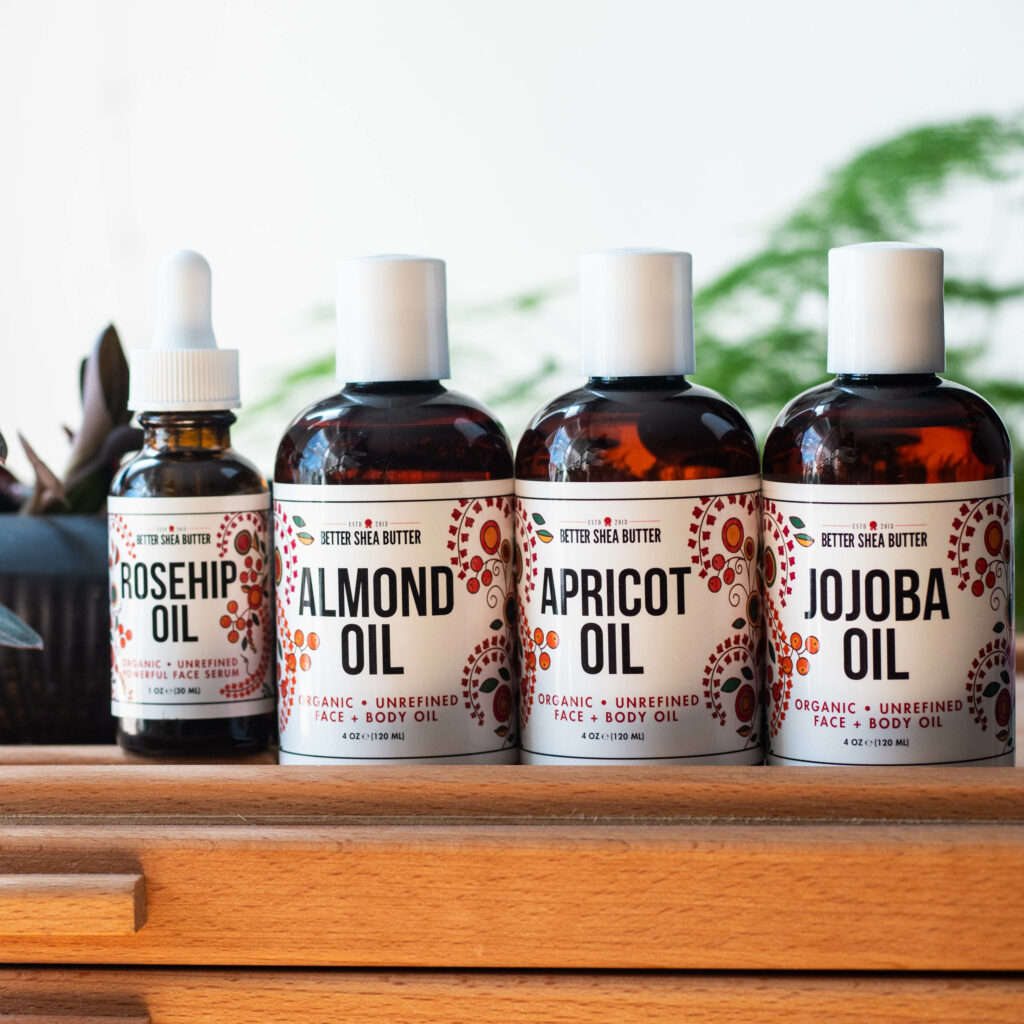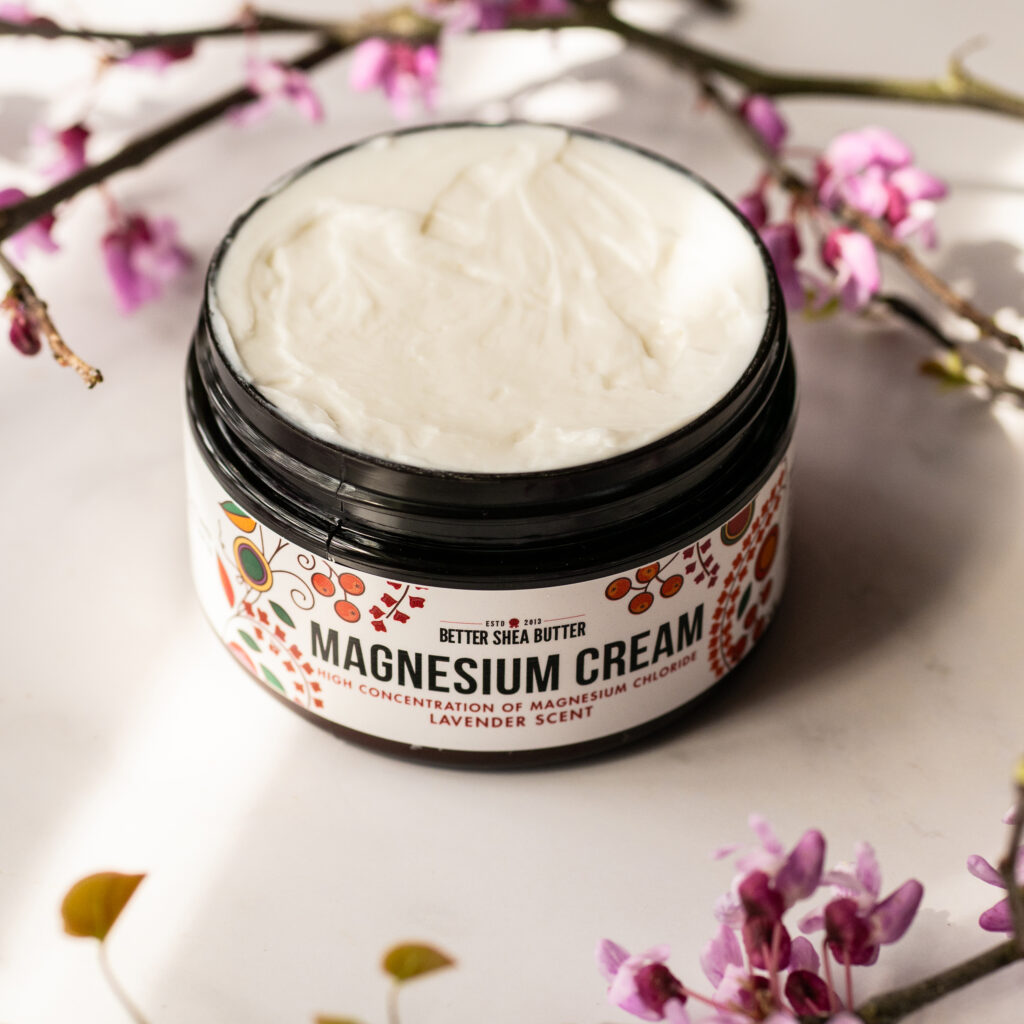The satisfaction of a great workout is undeniable. Pushing your limits, feeling the burn, and knowing you’re investing in your health. But that post-workout bliss can often be overshadowed by the inevitable: muscle soreness. Achy muscles can put a damper on your day and even discourage you from returning to the gym.
Today I want to bring up the benefits of incorporating magnesium creams and massage oils into your post-workout routine and how this can help relieve sore muscles, aches and pains.
The Power of Magnesium
Magnesium is a mineral that performs over 300 essential functions in the body. It is crucial for muscle function and recovery. Studies have shown that topical application of magnesium can help alleviate muscle soreness and cramps.
Magnesium Benefits and How it Works:
- Improved Blood Flow: Magnesium helps relax blood vessels, promoting better blood flow to your muscles. This increased circulation delivers essential nutrients for repair and removes waste products that contribute to soreness.
- Reduced Inflammation: Magnesium possesses anti-inflammatory properties, which can help lessen muscle inflammation and pain after a workout.
- Muscle Relaxation: Magnesium plays a role in muscle relaxation by regulating nerve impulses. This can help ease muscle tension and stiffness, promoting faster recovery.
The Benefits of Massage Oils
Massage after a workout offers numerous benefits beyond relaxation. Here’s how incorporating massage oils can enhance your post-workout routine:
- Improved Circulation: Massage oils help to warm the skin and increase blood flow to the muscles. This improved circulation helps deliver essential nutrients for repair.
- Reduced Muscle Tension: Massage helps break down muscle knots and tension, promoting relaxation and reducing discomfort.
- Improved Flexibility: Regular massage can improve your flexibility, making you less prone to injuries during future workouts.
- Enhanced Skin Health: Many carrier oils possess nourishing properties that can help soothe and hydrate the skin.
Choosing the Right Carrier Oil
When selecting a massage oil for post-workout relief here are some popular options and their benefits:
- Jojoba Oil: This lightweight oil closely resembles the natural oils produced by your skin, making it readily absorbed and non-greasy. It’s also known for its anti-inflammatory properties.
- Almond Oil: Rich in Vitamin E, almond oil is a gentle option that nourishes the skin and promotes healing. It’s also known for its ability to soothe irritation.
- Apricot Oil: This lightweight oil is easily absorbed and won’t clog pores. It’s rich in vitamins A and C, which can help promote skin health and recovery.
- Rosehip Oil: Known for its regenerative properties, rosehip oil can help promote tissue repair and reduce the appearance of scars. It’s also a good source of Vitamin A, which can aid in skin healing.

Massage Oil Recipes:
Soothing Massage Oil Recipe
- 1/4 cup Jojoba Oil
- 1/4 cup Sweet Almond Oil
- 5 drops Lavender Essential Oil
- 3 drops Peppermint Essential Oil
- Combine all ingredients in a clean glass bottle. Shake well before each use.
Relaxation Massage Oil Recipe
- 1/3 cup Apricot Kernel Oil
- 1/3 cup Rosehip Seed Oil
- 5 drops Chamomile Essential Oil
- 3 drops Ylang Ylang Essential Oil
- Combine all ingredients in a clean glass bottle. Shake well before each use.
Important Note: Always perform a patch test on a small area of skin before applying any essential oil blend to ensure you don’t have any sensitivities.
Topical Magnesium for Sore Muscles
Magnesium Cream is becoming more and more popular today for its many benefits and convenience of application. Consider a magnesium cream that uses a high quality magnesium in it as opposed to a synthetic magnesium or one watered down to not be very effective.
We have carefully crafted a magnesium cream of our own that contains magnesium sourced from the pristine Zechstein ancient seabed in the Netherlands, one of the highest quality magnesiums on the market today. This combined with the skin-loving benefits of pure shea butter, mango butter and apricot oil, makes a unique blend that provides effective topical relief for sore muscles while nourishing your skin with essential vitamins and minerals. Learn more about our Magnesium Cream here.

Creating Your Post-Workout Ritual
Here’s how to incorporate magnesium creams and massage oils into your post-workout routine:
- Cool Down: After your workout, allow your body to cool down with some light stretching or walking. This helps reduce muscle tension and prepares your body for recovery.
- Warm Bath (Optional): Consider soaking in a warm bath with Epsom salts for 15-20 minutes. This can further help relax your muscles and improve circulation.
- Apply Magnesium Cream: Apply a generous amount of magnesium cream to the affected areas, gently massaging it into the skin.
- Massage with Oil: Choose your preferred carrier oil and warm it slightly by rubbing it between your palms. Gently massage the oil into your muscles, focusing on areas of soreness and tension.
Tips for Optimal Results
- Consistency is Key: Aim to use magnesium cream and massage oils regularly, ideally after every workout, for optimal results.
- Listen to Your Body: If you experience any skin irritation, discontinue use and consult a healthcare professional.
- Hydration Matters: Drinking plenty of water throughout the day is crucial for muscle recovery.
- Fuel Your Body: Eating a balanced diet rich in protein and essential nutrients will help your muscles repair and rebuild.

Conclusion
By incorporating magnesium creams and massage oils into your post-workout routine, you can experience significant relief from muscle soreness and promote faster recovery. I hope you found this article helpful. If you have any questions or feedback please comment below.
